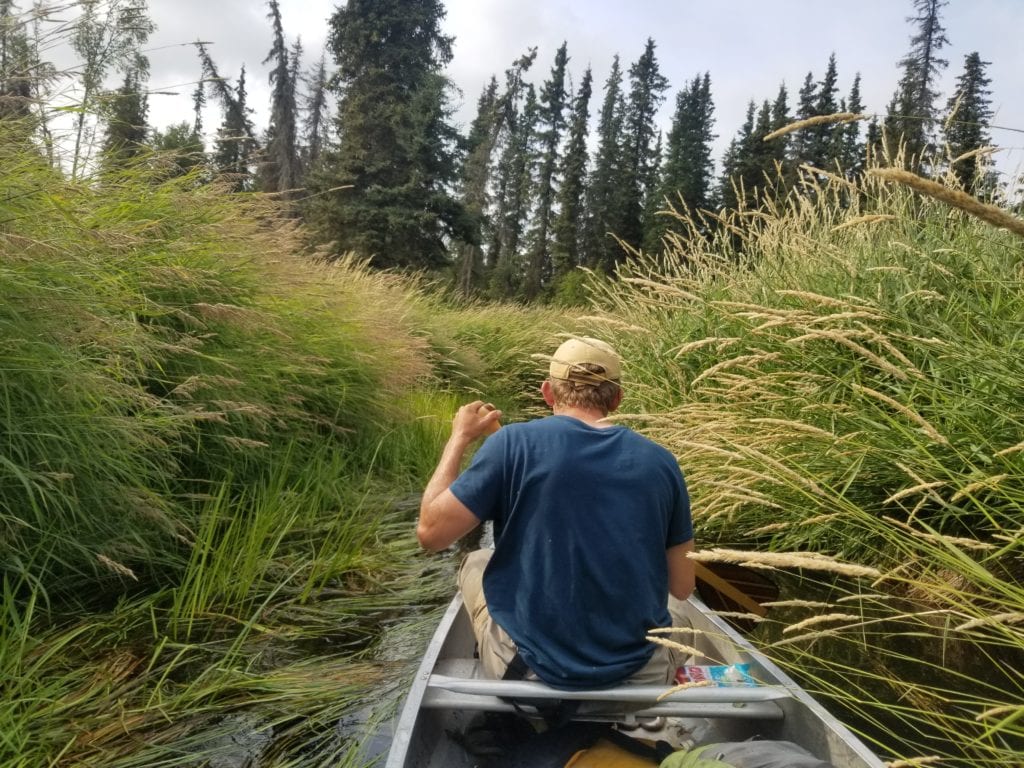
Herbicide has been successfully used to control invasive plants around Cordova, reports the Copper River Watershed Project.
Use of Roundup Custom for Aquatic and Terrestrial Use has dramatically reduced the spread of reed canary grass, said Chantel Adelfio, CRWP invasive plants coordinator, at an Aug. 29 public meeting. From 2018 through 2019, herbicide spraying diminished reed canary grass along the Copper River Highway from 8 acres to 2.5 acres, the CRWP reported. The most dramatic reduction took place along Whiskey Ridge, where 0.3 acres of reed canary grass dwindled to 0.06 acres.
“There’s hope,” said Adelfio. “This is not going to be, hopefully, years and years of spraying. If we can stay on top of this, we can spray in these areas continually until it’s either feasible to do other treatment methods or [the reed canary grass] is eradicated.”

Reed canary grass is a highly invasive and difficult-to-kill plant that has severely disrupted ecosystems elsewhere in the U.S. While it’s possible to dig out smaller stands of the plant, some larger areas can only be effectively controlled with the help of herbicide, Adelfio said. The CRWP’s campaign to contain the plant has also used methods like digging and covering stands with light-blocking tarp.
“We need to keep it off the delta, because, if it gets on the delta, it’s going to have horrible impacts to our streams and pristine habitat out there,” Adelfio said. “It’s not going to be easy, but we are getting there.”
Although the June 7 announcement of spraying in The Cordova Times provoked concerned responses on social media, the CRWP has succeeded in allaying public anxieties about herbicide spraying through one-on-one meetings with residents, Adelfio said.
Some residents who attended the Aug. 29 meeting, however, remained unconvinced, pointing to the fact that glyphosate, the active ingredient in Roundup Custom for Aquatic and Terrestrial Use, has been identified by the World Health Organization as probably capable of causing cancer in humans.
The CRWP has marked recently sprayed areas with orange flagging and pink tape, along with signs noting when spraying took place and how long the herbicide will require to dry. If reed canary grass can be eradicated around Cordova, re-infestation will be unlikely, Adelfio said.





